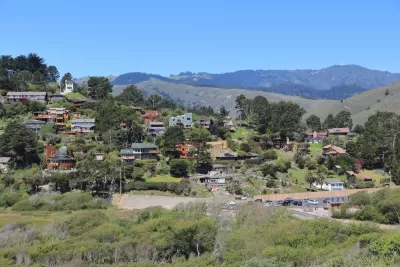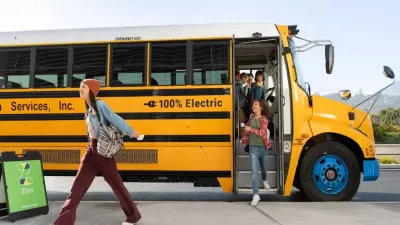Starting January 1, all new buildings in the county must be electric-powered, while multifamily apartment buildings will be required to provide electric car chargers.

California’s Marin County will require all new buildings to be powered by electricity starting January 1. According to an article by Jack Rogers in Globe St., “The county’s board of supervisors voted unanimously to enact the requirement, designed to cut greenhouse gas emissions by reducing the use of natural gas, the Mercury News reported.”
The ordinance also addresses electric car charging infrastructure in multifamily buildings—“The county is requiring that 15% of new multifamily units with parking spaces have level 2 charging stations, which exceeds the state requirement, which is limited to 5%”—and enacts stricter efficiency standards for building additions and remodels.
“The tougher rules for renovations apply to single-family homes of more than 750 SF,” Rogers notes. “Owners will be required to implement additional energy efficiency and electrifications, including several options, but the county has opted not to required [sic] all-electric renovations at this time.”
In 2019, nearby Berkeley banned natural gas lines in new buildings, citing the impact of greenhouse gas emissions on the climate and public health.
FULL STORY: Marin County Requires New Buildings to Be Electric

Maui's Vacation Rental Debate Turns Ugly
Verbal attacks, misinformation campaigns and fistfights plague a high-stakes debate to convert thousands of vacation rentals into long-term housing.

Planetizen Federal Action Tracker
A weekly monitor of how Trump’s orders and actions are impacting planners and planning in America.

In Urban Planning, AI Prompting Could be the New Design Thinking
Creativity has long been key to great urban design. What if we see AI as our new creative partner?

Cal Fire Chatbot Fails to Answer Basic Questions
An AI chatbot designed to provide information about wildfires can’t answer questions about evacuation orders, among other problems.

What Happens if Trump Kills Section 8?
The Trump admin aims to slash federal rental aid by nearly half and shift distribution to states. Experts warn this could spike homelessness and destabilize communities nationwide.

Sean Duffy Targets Rainbow Crosswalks in Road Safety Efforts
Despite evidence that colorful crosswalks actually improve intersection safety — and the lack of almost any crosswalks at all on the nation’s most dangerous arterial roads — U.S. Transportation Secretary Duffy is calling on states to remove them.
Urban Design for Planners 1: Software Tools
This six-course series explores essential urban design concepts using open source software and equips planners with the tools they need to participate fully in the urban design process.
Planning for Universal Design
Learn the tools for implementing Universal Design in planning regulations.
Appalachian Highlands Housing Partners
Gallatin County Department of Planning & Community Development
Heyer Gruel & Associates PA
Mpact (founded as Rail~Volution)
City of Camden Redevelopment Agency
City of Astoria
City of Portland
City of Laramie





























